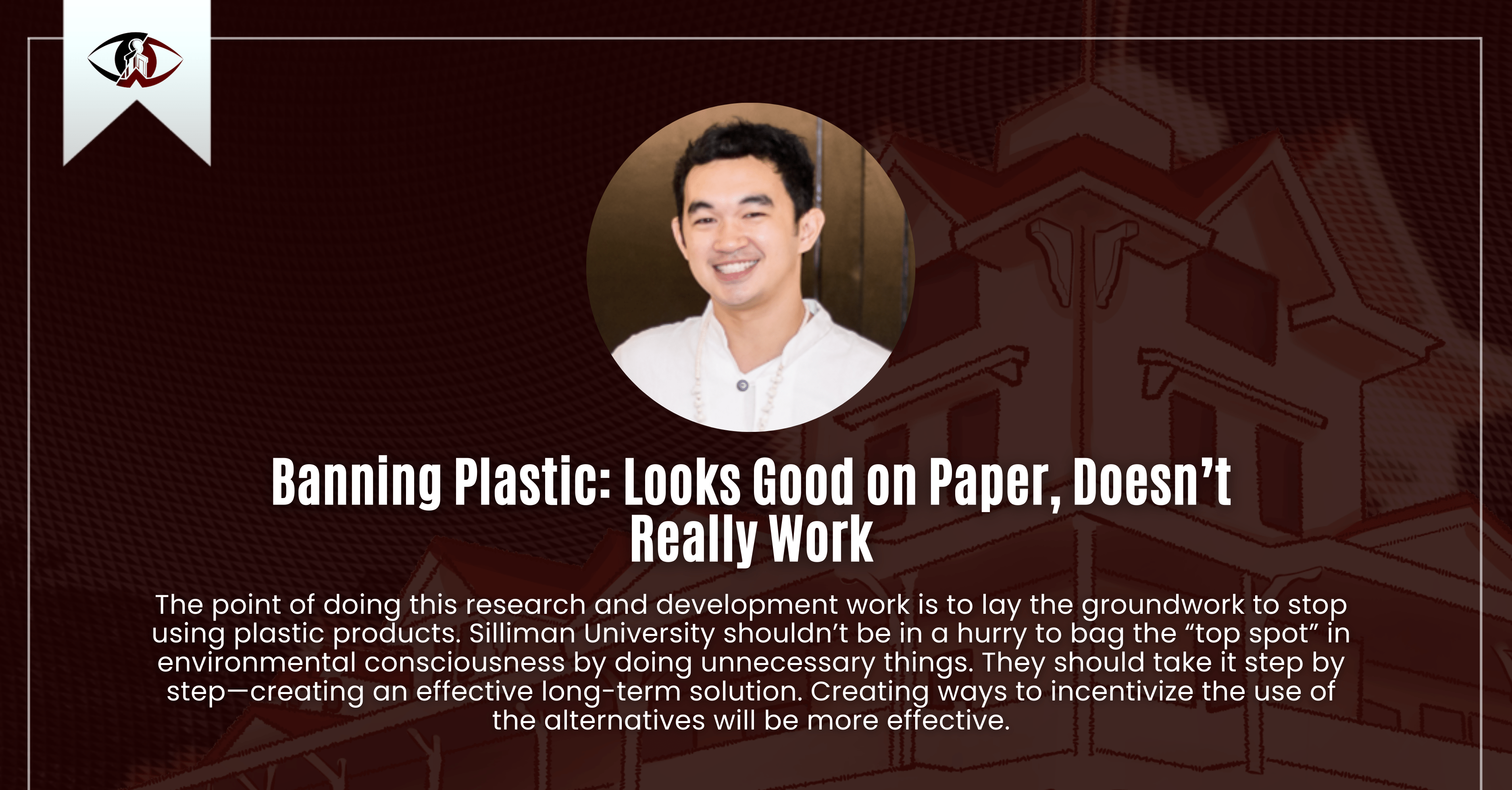By Luke Edward Gallares | March 7, 2024

For a university filled with professors, researchers, lecturers, experts, doctors, and more, I’d say that banning plastic within the school campus wasn’t a very well-thought-out plan.
What did they expect? That suddenly everyone would stop using plastic? Has it solved an issue, or is it just a high-horse move designed to make the university look better than other schools?
Hear me out: This kind of problem-solving is akin to parents banning their children’s relationships because they’re afraid that their kids will get pregnant early. If you simply ban them from seeing each other, there is a higher likelihood that your kids will continue dating. And since you don’t approve of the relationship, they’ll do it without telling you.
But what if you talk to both of your kids? You tell them that you want them to be responsible with their relationship, accept the fact that they might engage in baby-making activities while educating them about the dangers of not using protection, etc. Wouldn’t the chances of preventing pregnancy be higher? The best part is that you’re not even antagonizing your kids when it comes to these sensitive topics, making them trust you more!
You see, people are more susceptible to change with rewards or incentives instead of punishment. By banning plastics from the school campus, not only has the school made the friendly guards the unfortunate antagonists, but—in essence—the ban still really hasn’t solved anything. I am saying this because the ban only stops students from carrying plastic out in the open. Nothing is stopping them from hiding plastic bottles in their bags or wrapping them in paper.
However, we can’t just criticize without a proposal, right? The better idea is that instead of banning plastics, the school should first lay out a foundation. This foundation would empower the students to be more likely to return their plastic waste. In Germany, there is a bottle return system. When you buy certain products, you pay a deposit and you get it back when you return the empty plastic. This incentivizes people to return their waste products, and those who might be able to find these particular empty bottles, are rewarded by the system for throwing trash properly!
Second; tackling plastic straws and cups. In Leyte, I was given a pack of these straws made out of waste rice straws and hulls. These straws were handy, biodegradable, didn’t break so easily, and didn’t even affect the drink’s flavor. Additionally, they don’t soften up if they’re in the drink for too long. The problem however is the implementation. Although Negros Island is a crop-production economy, there is little innovation. Why can’t the school empower its engineering students in partnership with the Nutrition and Dietetics Department to create their brand? The results would even allow them to produce biodegradable cups that are environmentally friendly, durable, and edible—cheap too!
The point of doing this research and development work is to lay the groundwork to stop using plastic products. Silliman University shouldn’t be in a hurry to bag the “top spot” in environmental consciousness by doing unnecessary things. They should take it step by step—creating an effective long-term solution. Creating ways to incentivize the use of the alternatives will be more effective.
However, if we follow the plastic ban rule to the letter of the law, I might as well walk naked—because my shirt, socks, pants, shoes, and even underwear have certain elements of plastic in it.
Banning plastic just because doesn’t do anything. It’s tackling the core issue that will.


